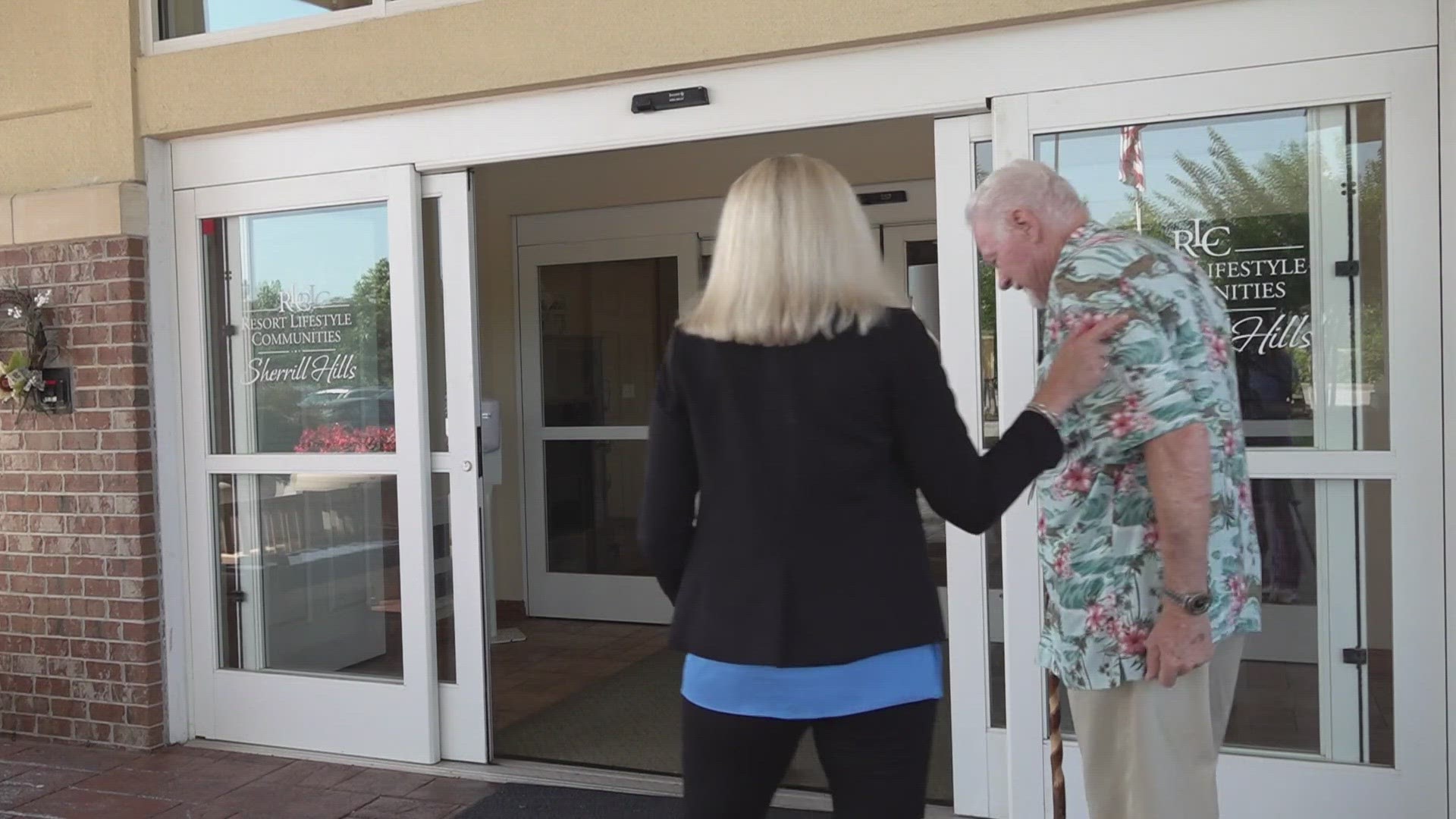KNOXVILLE, Tenn. — Experts say high temperatures can be dangerous for seniors, especially if they take certain medications. Dr. Benjamin Huff, from Summit Medical Group, said some common medications that are used to treat hypertension, heart failure and urinary issues can be dangerous for seniors during a significant heat wave.
"These may include blood pressure medications as well as diuretics and also a class of medications called anticholinergics. These medicines may alter the sensation of heat or work to exacerbate unintentional fluid losses from sweat or urination that can lower the blood pressure more than usual," he sad.
Robert Wilson is a military veteran and now lives at Sherrill Hills retirement resort. He has Parkinson's cardiovascular issues and PTSD.
"I was in Vietnam for a year and so I was exposed to Agent Orange," Wilson said. "I have medication. I drink a lot of water. Because yeah, because of the heat."
Dr. Huff explains that some medicines can change the sensation of heat or can make seniors lose fluids faster than normal. That can lower their blood pressure more than usual.
For seniors in lower-income communities, the Knoxville-Knox County Community Action Committee said they help more than 1,100 people monthly.
"We do have box fans that are new box fans that we can take out just to keep seniors cool. They are, we also have a few window air conditioning units that we can provide and help to install if the person is not able to get that installed themselves," said Misty Hagy Goodwin, social services director of CAC.
Caregivers should also pay closer attention during heat waves, Goodwin said.
"Be sure to check on your loved one too on these hot days, and just give them a call and make sure they're reminded that they really need to try to stay indoors," Goodwin said.
Lisa Hooper from Senior Helpers said there are many ways to help.
"We coach our caregivers and family members to recognize signs of dehydration. Things like a senior complaining of a headache, dizziness, fatigue — that's abnormal confusion," Hooper said. "It's super important right now that we have caregivers, and families, making sure that they are double-checking that their loved one has a clear fluid to be sipping on all day long. Things like water, coconut water, clear Ensure milk, diluted juice, things like that."
Dr. Huff said most people hydrate enough throughout the day. Under normal circumstances, people should drink half of their body weight in ounces.
"For example, a 200 lb person should have close to 100 ounces of fluid in a day," Dr. Huff said. "That is just over 8 bottles of water. The sensation of thirst is actually delayed and a person is mildly dehydrated already when that occurs."
The hottest part of the day is between noon and 4:00 p.m. Dr. Huff said it's best to avoid being outside during those hours. But if seniors absolutely have to go outside, then they should take frequent breaks in the shade or wherever there's air-conditioning.
There are some signs of health issues they should also be aware of.
"Increase in fatigue, confusion, muscle aches, cramps, excessive thirst, dizziness," Dr. Huff said. "If any of these symptoms begin to occur, find the shade or air-conditioning and increase hydration. Symptoms that do not start resolving after this and a short period of time may necessitate seeking medical attention for heat exhaustion or heat stroke."
Wilson said he knows he needs to be careful.
"I stay in and walk down the hallways, drink water and eat properly," Wilson said. "I want people to take care take care and think positive."

